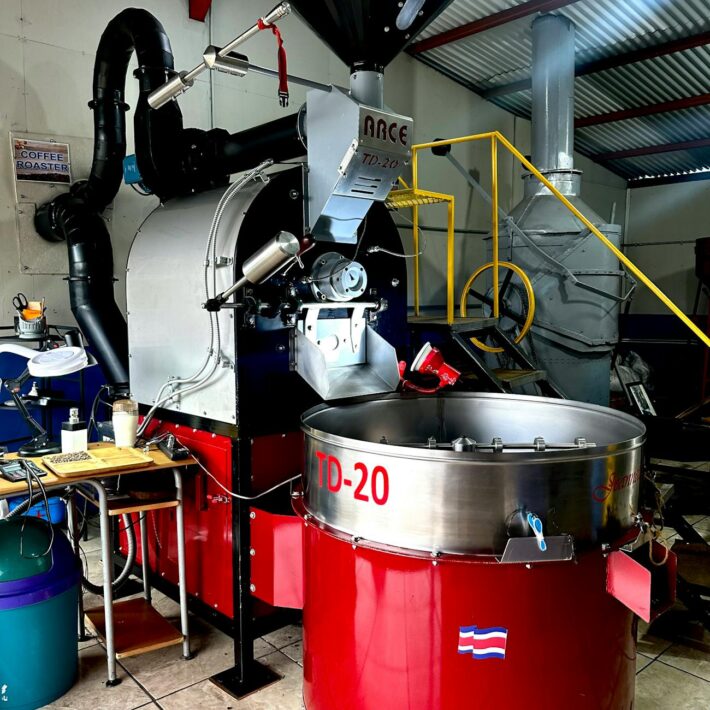Affordable Housing Development Business Ideas to Start in 2024

Contents
Affordable Housing Development Business Ideas to Start in 2024
Affordable housing isn't just a trend; it’s a necessity in today’s economy. As urbanization continues to rise and living costs increase, many people are struggling to find homes they can afford.
Entrepreneurs looking to make a positive impact on their communities will find numerous opportunities to engage in affordable housing developments. With a creative mindset and a commitment to social good, any small business owner can enter this inspiring sector. So, what are some affordable housing development business ideas you can explore in 2024?
Affordable Housing Development Business Ideas
Here’s a list of 15 specific business ideas, each essential for meeting the various demands in affordable housing.
Modular Home Construction
Modular homes are built in sections, then transported to the building site and assembled. This method is quicker and often more cost-effective than traditional homebuilding. By embracing modular construction, small business owners can offer affordable housing solutions with less waste and faster completion times. Imagine being able to deliver a livable home to families in weeks instead of months!
Tiny Home Communities
Tiny homes are not only trendy, but they're also an excellent solution for affordable living. Developing a community that focuses on tiny homes can cater to millennials, downsizers, and minimalists looking for a simpler lifestyle. Plus, a well-planned tiny home community promotes sustainability and creates a sense of camaraderie among neighbors.
Co-Housing Development
Co-housing encourages communal living, where families share common spaces while maintaining private residences. This fosters community support and resource sharing, making housing more affordable. A co-housing approach appeals to multiple generations, offering affordable living while creating strong social networks.
Affordable Senior Living Facilities
With the aging population growing, the demand for affordable senior living facilities is significant. Entrepreneurs can explore business models that provide well-designed yet affordable accommodations for seniors, often enriched with communal spaces and accessibility features, ensuring that older adults can live independently and enjoy a community life.
Renovation of Vacant Buildings
Transforming vacant properties into affordable homes benefits communities by revitalizing historically significant areas. This process often requires permits and understanding of zoning laws but can lead to rewarding results. Entrepreneurs can partner with local government programs and grants aiming to reduce blight and enhance community aesthetics.
Real Estate Investment Trusts (REITs) Focused on Affordable Housing
Investing in affordable housing through REITs can be an exciting frontier for small business owners. By pooling resources with other investors, entrepreneurs can acquire multiple properties, supporting affordability while ensuring a financial return on investment. REITs specialized in affordable housing not only provide income but also do immense social good.
Non-Profit Housing Developers
Non-profit organizations often have a straightforward mission: providing affordable homes. By starting a non-profit housing development business, you can access various funding opportunities, grants, and partnership potentials with local and state governments. This model paves the way for sustainable solutions to meet housing needs.
Prefabricated Housing Solutions
Prefabricated homes are manufactured in factories and can be assembled quickly at the site. This business model offers entrepreneurs an affordable solution and potential to innovate, with various designs at lower costs compared to traditional approaches. Being part of a modern construction movement is both satisfying and profitable!
Community Land Trusts
Community Land Trusts (CLTs) are not just about building but also about maintaining affordable housing over generations. They are non-profit organizations that acquire and steward land for community goals, thus ensuring that homes can remain affordable. Entrepreneurs can engage with CLTs to develop land while fostering community stability.
Mixed-Use Developments
Mixing residential, commercial, and community spaces can foster economic collaboration and provide vital services close to home. Small business owners can leverage this model not just to meet housing demands, but also to encourage local commerce, creating neighborhoods that holistically meet community needs.
Green Building Practices in Affordable Housing
Sustainability can enhance affordability in housing. Implementing green building practices in projects such as energy-efficient installations can lessen utility costs, appealing to eco-conscious buyers. For entrepreneurs, this approach enhances brand identity while meeting consumer demands.
Public-Private Partnerships for Housing Development
Collaborating with public entities can effectively boost housing developments. Through public-private partnerships, small business owners can secure funding, resources, and shared expertise from government initiatives, streamlining the housing development process while ensuring affordability.
Affordable Housing Consulting Services
Consulting services revolve around helping developers navigate regulations, secure funding, and create plans for new housing developments. Those with experience in real estate and urban planning can provide critical support to upcoming developers, fostering new affordable housing projects.
Education and Training Programs for Construction Workers
The affordable housing sector often faces labor shortages. Entrepreneurs can create educational programs catering to new construction workers, filling gaps in labor while supporting affordable building projects. This opportunity blends business expansion with community development by addressing employment needs.
Marketing Your Affordable Housing Business
How do you ensure your affordable housing ventures reach the potential clients who need your services the most? Here are some effective strategies:
Brand Identity and Logo Design
Having a strong brand identity is essential. First impressions matter, especially in the housing market. Investing time in logo design that speaks to your mission—affordability, community, and sustainability—can attract the right clientele. Make it visually engaging, relatable, and reflective of your business values; consider consulting Logo Ideas for inspiration.
Being visible in today’s crowded marketplace requires clear branding. Your logo and messaging should communicate trust and reliability while appealing to those in search of affordable housing solutions.
Conclusion
Affordable housing development isn’t just a viable business opportunity—it’s a powerful way to make a real difference in communities. From modular homes to co-housing and potential collaborations with local governments, the entrepreneurial opportunities are countless. As a small business owner, this sector provides avenues not only for profit but also for vast societal impact. So think boldly, plan meticulously, and step forward to create housing solutions that truly benefit society. The world needs engaged, compassionate entrepreneurs like you right now.

As our Chief SEO & Branding Strategist, Robert Ellison is a digital marketing visionary with over 25 years of experience transforming brands through smart, data-driven SEO and impactful storytelling. Known for his expertise in aligning technical SEO with authentic brand narratives, he leads our team in creating strategies that boost search rankings while building strong, sustainable brand identities. A trusted advisor and frequent industry speaker, Robert combines deep technical knowledge with creative insight, helping our clients not only reach the top of search results but also genuinely connect with their audiences.








